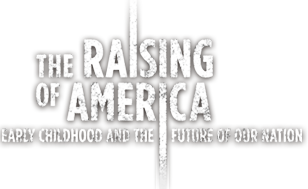Once Upon a Time
When Childcare for All Wasn't Just a Fairytale
to watch purchased videos
Childcare in America is a patchwork—uneven in quality, unaffordable to most and failing many of our youngest children. How might American life might be different today if all of the nation’s children had access to high-quality early care and education for the past four decades? We almost did.
In 1971, a bi-partisan Congress, still influenced by the Civil Rights movement and War on Poverty, passed a bill providing high-quality childcare, home visiting and other services to every family which wanted it, the Comprehensive Child Development Act (CCDA). But for the bill to become law, it needed President Nixon’s signature.
Patrick Buchanan, a young White House speechwriter at the time, reveals how powerful conservatives, “the elite of the conservative movement,” he calls them in the film, went to work behind the scenes, recasting the bill as government intrusion in the family.
At the 11th hour, Nixon vetoed the bill. On camera, Buchanan reads the veto message he penned for Nixon. It tarred the CCDA as “a communal approach” to child rearing. The veto was the first time “family values” were invoked to undermine families. It marked a seminal inflection point from our nation’s progress towards a more inclusive society to the “fend-for-yourself” America of today.
But there is a federally-funded childcare program for the nation’s largest employer: the U.S. military. In 1989, 18 years after Nixon’s veto, Congress mandated that the armed forces offer high-quality care to all families and employees of the military. At Camp Pendleton Marine Base, we witness some of the best childcare in the country, all of it affordable, child-centered and strictly regulated.
We once came achingly close to winning childcare for all. What will it take to enact effective child and family policies today?


